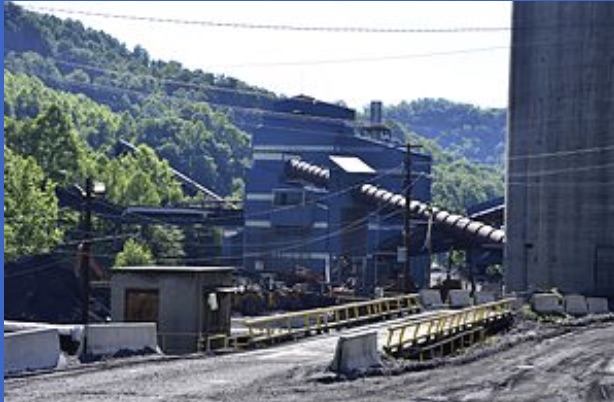Environment
Short Takes
Georgia’s new data center rule increases local controlDecember 1, 2025

By David Pendered
The Supreme Court may rule Monday on the EPA’s ability to address climate change. Lung care and environmental advocates urge the court not rule in a case that, like abortion, offers justices an opportunity to reduce federal sway over states.

The State of Georgia, a Georgia GOP congressmember and the Roswell-based Southeastern Legal Foundation are among those urging justices to reduce EPA’s authority. They joined West Virginia, the lead plaintiff, and 11 other states, plus Mississippi Gov. Tate Reeves in challenging the EPA’s authority.
This case is viewed as presenting aspects similar to the Mississippi abortion lawsuit that five justices used in a June 24 ruling to overturn the Roe v. Wade decision, which had made abortion legal in all states. The environmental case presents justices with the opportunity to reduce the scope of the federal government’s use of administrative authority. Monday is the court’s last scheduled day in session, though a release date in July is not out of the question.
The issue involves an administrative rule involving the Clean Air Act that was established during the Obama administration and rescinded during the Trump administration. In a subsequent lawsuit challenging the Trump-era ruling, a lower court ruled in favor of the Obama-era interpretation of the Clean Air Act and an appeal of that decision was filed by the State of West Virginia and various coal interests. The cases are now consolidated under the style, West Virginia, et al. v Environmental Protection Agency, et al.
The rule that triggered the environmental litigation is the Clean Power Plan, which was implemented by the Obama administration to help the nation meet its agreements under the Paris Climate Accords. The Trump administration replaced the plan in 2019 with the Affordable Clean Power rule, which was less aggressive in reducing carbon emissions.
Georgia Attorney General Chris Carr signed as an additional counsel on West Virginia’s request that the Supreme Court consider the case. The document filed Aug. 24 outlines the West Virginia’s contention that justices need to rule on the case because the EPA has overstepped the authority provided by Congress and that EPA can be expected to continue to overstep its authority if it is not curbed. A portion of the brief observes:
The American Lung Association, Sierra Club and 14 other organizations contend the matter is not ripe for judicial review. Their brief contends no rule is being enforced, that a new rule is being devised and that no power producer has joined in the litigation:
• “Not a single owner or operator of any electric power generation facility – that is, not a single regulated entity – has petitioned for certiorari. Petitioners are states and fuel suppliers who focus their objections principally on the regulatory approach taken in the Clean Power Plan, a six-year- old EPA rule that Petitioner North American Coal Corporation characterizes as a “relic,” Pet. 18, and that Petitioners acknowledge never has gone into effect and never will.”
Georgia Rep. Buddy Carter (R-Savannah) joined Senate Majority Leader Mitch McConnell and 89 other lawmakers in signing a brief in support of West Virginia’s position. Their brief observes:

• “If Congress had intended to give the EPA such sweeping authority to transform an entire sector of our economy, Congress would have done so explicitly. An administrative agency like the EPA may decide issues of such vast economic and political significance only when the agency can point to “clear congressional authorization.”
The Southeastern Legal Foundation submitted its own brief supporting West Virginia’s position. SLF has taken positions in several Supreme Court cases and brought the initial, ultimately successful, complaint against then-President Bill Clinton demanding that he lose his law license. SLF was founded in Marietta and now lists an address in Roswell. The brief observes:
• “The EPA does not have the vast authority the D.C. Circuit purported to give it. When the EPA promulgated the Clean Power Plan (CPP), it created significant federalism issues by requiring broad changes to the energy industry at the state level. It coerced States to comply with the EPA’s guidelines by creating implementation plans that would cripple state energy programs if left unchecked…. The EPA needed clear authorization from Congress before it could impose such economically and politically significant regulations on the energy industry.”
The plaintiffs contend the matter boils down to a question of federal overreach, observing in their brief:
• “Section 111 of the Clean Air Act does not clearly give EPA authority to upend the power industry. Two independent canons of construction confirm that the D.C. Circuit misconstrued that provision.
• “First, EPA now wields power to decide major questions implicating hundreds of billions of dollars, tens of thousands of potentially regulated parties, and years of congressional wrangling. The agency may compel plant owners to pay competitors. It can even force plants to shut down. Yet Congress did not clearly say in any part of the CAA, much less Section 111, that EPA can exercise this transformative power. That omission dooms any claim that EPA can.
• “Second, the D.C. Circuit’s opinion reordered the traditional “division of responsibilities” between States and the federal government – over clean air and energy- related issues alike. … Regulating electricity generation is the States’ domain. The CAA, too, assigns the States primary responsibility for regulating existing emission sources. Yet the D.C. Circuit’s approach to Section 111 allows EPA to drive the essential decisions in both areas. If Congress meant for that result, it would have clearly said so. Here again, it did not.”
For their part, the justices have agreed to consider this one question:
• “[D]id Congress constitutionally authorize the Environmental Protection Agency to issue significant rules – including those capable of reshaping the nation’s electricity grids and unilaterally decarbonizing virtually any sector of the economy – without any limits on what the agency can require so long as it considers cost, non-air impacts, and energy requirements?”
0